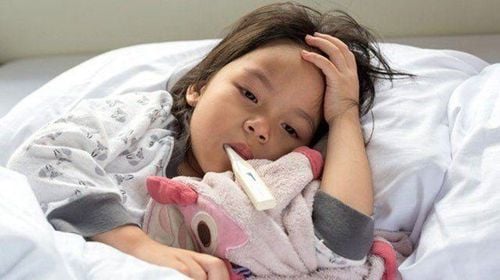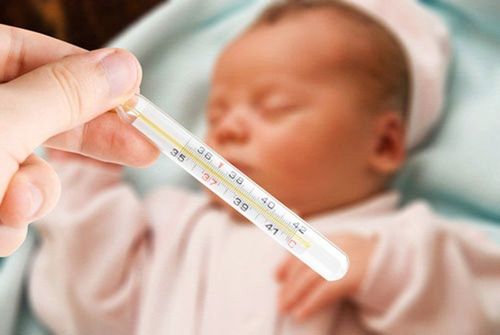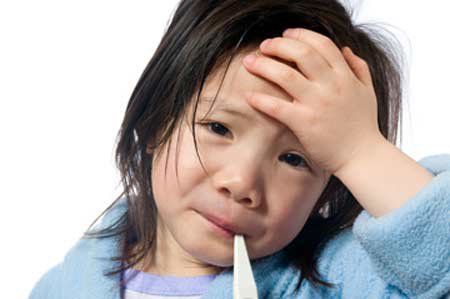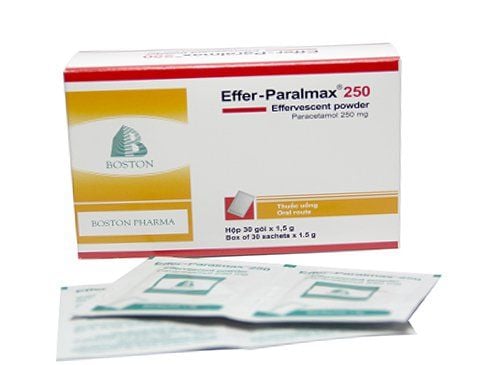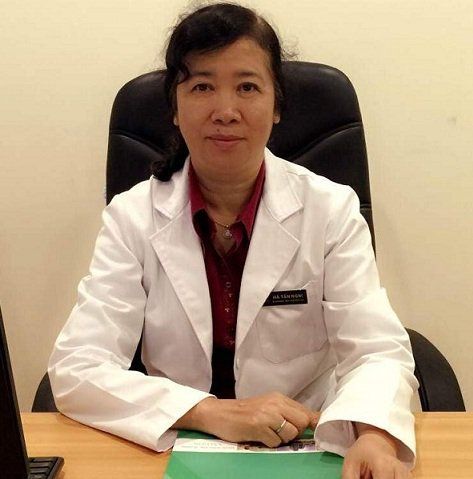This article is professionally consulted by Dr. Cao Thi Thanh, Specialist II in Pediatrics - Neonatology - Vinmec International General Hospital Hai Phong.
Fever is a very common symptom in infants and young children, but instead of the child being hot all over, their hands and feet are cold. So, is a high fever with cold hands and feet dangerous? How should parents care for a child in this condition, and when should they take their child to see a doctor?
Dr. Cao Thi Thanh from the Pediatrics - Neonatology department at Vinmec Hai Phong International Hospital will help parents answer these questions.
1. What is a high fever with cold hands and feet?
Case 1: High fever is a symptom, and cold hands and feet are a consequence of the fever. Most children with cold hands and feet fall into this category.
Fever is produced by the body's immune system under the direction of the brain's hypothalamus (a part of the brain that controls body temperature, hunger, thirst, and other essential functions). When the hypothalamus detects an infection, it sets a "setpoint" that forces the body to increase its temperature (fever). The immune system then releases substances that cause the blood vessels in the hands and feet to constrict, so parents will see the child's hands and feet cold.
However, once the body reaches the "setpoint," the blood vessels will dilate. At that point, parents will see the child's hands and feet turn pink, sometimes with red spots, and the child will sweat and no longer feel cold.

Case 2: High fever and cold hands and feet are a consequence of a virus.
In some cases, a high fever with cold hands and feet is a sign of a viral infection. The virus attacks the brain and small blood vessels in the child's hands and feet. This is a serious condition, and the child may develop meningitis or a blood infection.
Therefore, the best way to handle a child with a high fever and cold hands and feet is to take them to a doctor for an accurate diagnosis.
2. Other signs of fever that can reassure you that your child is not seriously ill
- Normal skin color
- Normal speech and behavior / smiling
- Child is awake or wakes up quickly and easily when called
- Cries loudly, normal reflexes
- Lips and tongue are not dry, not thirsty

3. Other signs of fever that can indicate that your child is in a more serious condition
- Your child is under 6 months old and has a fever above 39°C.
- Pale or even bluish skin
- Does not respond to you as usual / does not smile / cries a lot for several hours
- Difficult to wake up
- Unwilling to do anything, lies still, lethargic
- Dry lips and tongue, sunken eyes and fontanelle (the soft areas on a newborn's head)
- Has a few chills
- When the child breathes, the abdomen bulges and the chest sinks
Stiff neck - Blisters on the skin
- Rash when pressed
4. How can parents care for a child with a fever and cold hands and feet?
- Children with a fever below 38°C do not need fever-reducing medication.
- Drink oral rehydration solution for children: Orserol.
- For children with a fever of 38.5°C, parents can give them children's fever-reducing medication, such as hapacol - paracetamol.
After receiving an accurate diagnosis from the doctor, mothers should keep the child's body cool with clothes that absorb sweat well. Wipe the child with a warm cloth to make them feel comfortable and less cold. Feed the child soft, easy-to-digest foods like porridge and milk. If the child has any warning signs, parents should take the child to see a doctor.
The Pediatrics department at Vinmec International General Hospital is a place to receive and examine diseases that infants and young children are susceptible to: viral fever, bacterial fever, otitis media (inflammation of the middle ear), pneumonia (lung infection) in children, etc. With modern equipment, a sterile environment, minimizing the impact and risk of disease transmission. Along with the dedication of experienced doctors with pediatric patients, making visits no longer a worry for parents
A high fever with cold hands and feet in young children can become dangerous if not diagnosed and treated promptly by a doctor. To arrange an appointment, please call the HOTLINE or make your reservation directly HERE. You may also download the MyVinmec app to schedule appointments faster and manage your reservations more conveniently with Dr. Cao Thi Thanh, Specialist II, anytime, anywhere.





